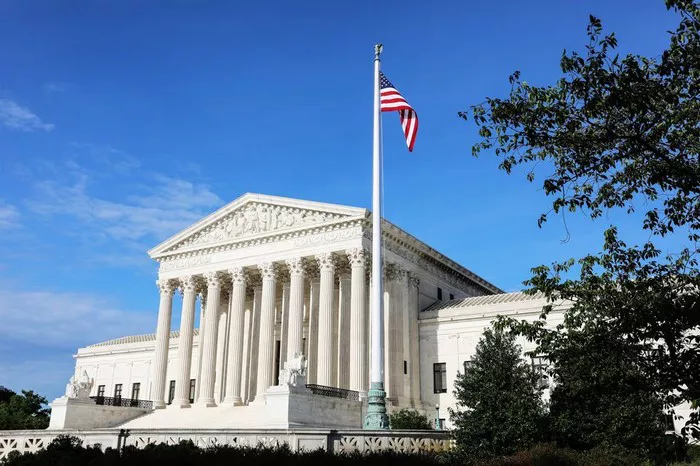The United States Supreme Court’s recent decision has paved the way for Texas to promptly enforce a contentious immigration law, granting state officials the authority to apprehend and detain individuals suspected of unlawfully entering the country. Notably, the court’s three liberal justices dissented from the ruling.
This legal development comes amid ongoing federal appeals challenging the law’s validity. Nevertheless, the decision represents a significant albeit provisional victory for Texas in its ongoing dispute with the Biden administration over immigration policies.
Senate Bill 4, endorsed by Republican Governor Greg Abbott in December, criminalizes illegal entry into Texas and empowers state judges to order the deportation of immigrants. The legislation, although touching on immigration enforcement—a traditional federal domain—has sparked concerns among advocates regarding potential racial profiling and the increased detention and deportation activities by Texas state authorities, particularly in a state where Latinos constitute 40% of the population.
Initially halted by a federal judge in Austin, the law faced a temporary stay by the 5th US Circuit Court of Appeals pending a final decision, which the Supreme Court’s recent order has now overridden. Governor Abbott welcomed the court’s decision as a positive development, while acknowledging the case’s continued proceedings in the appeals court.
In response to the ruling, White House press secretary Karine Jean-Pierre expressed fundamental disagreement, denouncing SB 4 as a measure that not only compromises community safety but also burdens law enforcement and exacerbates chaos along the southern border. She further criticized the politicization of border issues by Republican officials.
The Supreme Court, in its customary fashion for emergency applications, refrained from providing detailed rationale for its decision. However, Justice Amy Coney Barrett, joined by Justice Brett Kavanaugh, clarified that the appellate court’s intervention was only an interim “administrative” measure. Barrett emphasized reluctance in having the Supreme Court interfere in reviewing such temporary orders.
In dissent, Justice Sonia Sotomayor, joined by Justice Ketanji Brown Jackson, expressed concerns over the potential repercussions of the law, highlighting its disruption of the longstanding federal-state balance of power in immigration matters and its adverse impact on sensitive foreign relations, federal enforcement efforts, and individuals fleeing persecution.
The legal battle over SB 4 is far from over, with the 5th Circuit scheduled to hear arguments in April. Justices Barrett and Kavanaugh underscored the importance of judicial restraint in second-guessing appellate courts on short-term administrative pauses, signaling the potential for further review depending on the appellate court’s forthcoming decision.
As the case progresses, stakeholders continue to voice their positions. Attorney Tami Goodlette, representing some of the law’s challengers, lamented the high court’s order, emphasizing the risks it poses to individuals affected by SB 4. Meanwhile, Homeland Security officials reported a decline in migrant crossings at the US-Mexico border following record highs in December, attributing the decrease to ongoing negotiations with Mexico.
The implications of the Supreme Court’s decision extend beyond legal circles, with law enforcement officials in Texas navigating the complexities of SB 4 implementation. Concerns regarding resource allocation, racial profiling, and operational protocols loom large as authorities grapple with the law’s enforcement.
The Department of Homeland Security cautioned against the potential ramifications of SB 4, highlighting its disruptive effect on immigration enforcement and reaffirming immigration as an exclusive federal prerogative. Amidst these developments, the fate of SB 4 hangs in the balance, awaiting further judicial scrutiny and potential revisitation by the Supreme Court.


